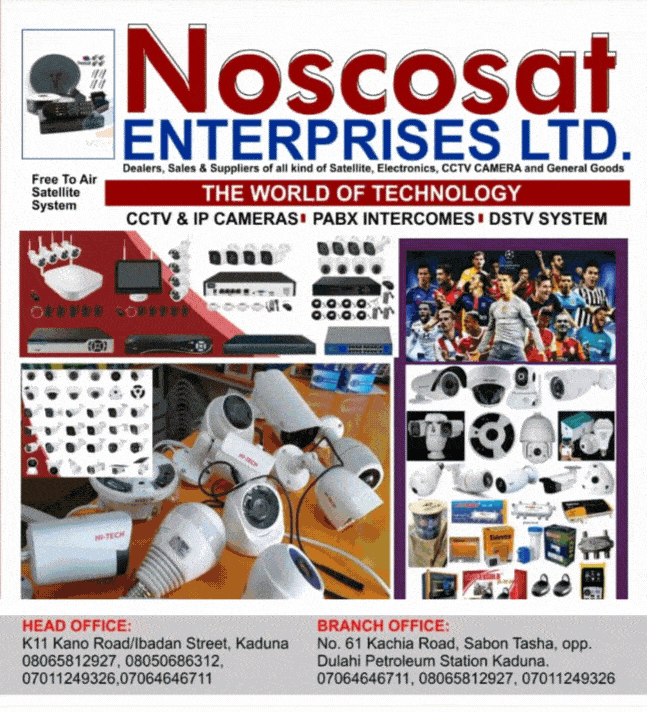By Hakeem Baba-Ahmed
“Corruption is paid by the poor”—Pope Francis
I have been teaching post graduate students Public Policy and Governance for the last few years. I have found that the segment of the course that deals with decision-making and the policy environment excited all my classes over the years. In particular, we have ended all sections of the course dealing with policy making and governing through crises with the conclusion that character of the leadership, as well as the nature of the crises, are the two basic factors that determine some form of success or failure, yet they are not easily amenable to scientific analyses or predictive accuracy.
Every class I have taught had dwelt at length on the murky outlines of Nigeria’s fuel subsidy policies, from philosophy to design, to options to challenges of implementation and monitoring. Every class went through the challenges leaders had with corruption and waste around the policy, as well as the strengths and weaknesses of leadership that had allowed the problems around the policy to get successively worse. I had found very few students who, at the end of discussions, were willing to end the greatest scam this country had tolerated in the name of social service, principally for political reasons.
Everyone with even an elementary understanding of our oil and gas assets and policies around them has known that the fuel subsidy monster needed to be tackled decisively a long time ago. Many people, in and outside Nigeria, knew how deeply entrenched the interests around sustaining the policy had become. One of its strengths is that it had succeeded in selling the idea that removing the policy was the ultimate anti-people policy any administration should contemplate.
No leader had had the political will and courage to remove it, phase it out in a manner that either reduces the shocks and provides reliefs against them, or engage key stakeholders and managers of public opinion in agreeing on options and strategy. The more the resistance around removal of the subsidy dug in, in any form or manner, the more the beneficiaries of the scam walked away with trillions. Ironically, the strongest opponents of the subsidy removal argument have failed to see that the real problem was unspeakable corruption and weak political will of leaders regarding the subsidy, not the subsidy itself. We ended up preserving two evils: gigantic corruption and the sustenance of a policy which fed it. Defenders of public interest, including labour, appear to have given up on convincing governments to explore a combination of solutions in the face of the sheer magnitude and complexity of the systemic scam, and had become stuck at the argument that the subsidy had to be preserved at all cost.
It is, today, President Tinubu’s lot to carry the cross of all past follies and weaknesses, and he has to do this under tremendous pressure to make a choices under tremendous pressure. He should know he is bearing the failures of predecessors; the prospects of a virtual uprising; the worst beginning for a presidency that should place the highest premium in building acceptance, alliances and coalitions; the absence of a robust policy and administrative framework that should think well, prepare for crises management and lead the nation to a point where worst consequences are tampered by strong evidence of empathy and competence.
In one fell swoop, he has taken on only one out of many related challenges that will not necessarily turn the removal of subsidy into a magic wand of sorts.
Pervasive corruption in scales rarely seen anywhere in the world and its tolerance and encouragement by successive regimes have destroyed and distorted the fundamentals of an economy that could have been nurtured into one of the most prosperous outside advanced industrialized countries.
Corruption and poor governance stopped the development of local refining capacities; created cartels around a severely abused subsidy policy; enabled smuggling of refined fuel and stealing of crude in industrial scales; created multiple exchange rates that destroyed local industrial capacities and made multiple billionaires with the right connections; bankrupted the economy and accumulated huge debts; created the fiction that the removal of subsidy is a declaration of war on the poor; deprived the country of development assets; and kept away foreign investment, even in the oil and gas industry, away from a country with quite possibly the worst image for its leaders and business environment.
Tinubu’s cross will not be about removing subsidy. It is about endemic corruption and weak political will to fight it. He will have to explain to Nigerians why he is different, and why they should trust him. Making the case that the country is broke and cannot sustain the subsidy will be difficult to sell to a population with very little faith in leaders. The country has been broke for a long time, and President Tinubu’s predecessor spent the last few years twisting the knife with weak political will and a propensity for easier choices.
He could remove subsidy and make life a lot more unbearable, but he will not get ten Nigerians who will believe that he has answers to consequential rises in food prices and just about everything that has to be bought. He could gain some sympathy if he can hold up some evidence that subsidy is a huge scam, and he could prove it with solid evidence and culprits and punishments.
If he can show some ripe-and-ready evidence of massive corruption around fuel subsidy and the exchange regimes, a few Nigerians may accept it in exchange for some hardship that will expose and eliminate entire systems and persons. If he does not show Nigerians that the subsidy policy was hijacked by a den of thieves, he should not expect the poor to roll over into more hardship.
What will be difficult to sell is the idea that we are too broke to keep subsidy on petrol, a service we have a right to expect, but everything else stays in place. Even more difficult to sell will be the idea that no one was responsible for making the subsidy unsustainable, as if it was run by saints. We just became broke, lets live with it. If we are too broke to sustain the subsidy regime, Nigerians will say, where will reliefs come from, and when? Will they come from the $800 President Buhari said he borrowed to provide palliatives? More debts?
Palliatives have become a dirty word since COVID days; does President Tinubu know that? Will the corruption that brought us to where we are today allow President Tinubu to put in place reliefs that will touch the poorest of Nigerians? Will he take on scams around exchange rates, crude theft, smuggling, funds set aside for turnaround maintenance, and a dozen brazen abuses the economy was made to suffer, to allow a tiny part of the elite run the classic rentier state?
These questions may sound pedestrian, but few Nigerians can ask questions which reflect deep understanding of economics and governance. One of President Tinubu’s tasks is to explain it to them while he is still running after hitting the ground from Eagle Square on May 29th. But see his problem. He does not yet have a cabinet with people who will help him explain complex phenomena to Nigerians whose quality of life took a dive on his first day in office.
Not just any people, but people who are good enough to do justice to positions he will assign them; competent enough to do it well; with obvious records of achievement and personal integrity and, above all, who understand that Tinubu’s war is against corruption, and the fiasco he is about to deal with is only one battle in this defining war. The only way Tinubu can win the battle which will pitch the people and those versed in systemic plunder on one side, and his brand new presidency on the other, is to commit to fighting deep-seated systemic corruption in Nigeria. It is a tall order, but it really is what this gathering storm around subsidy is all about.
That is the cross Tinubu will bear successfully, or it will crush his presidency.




